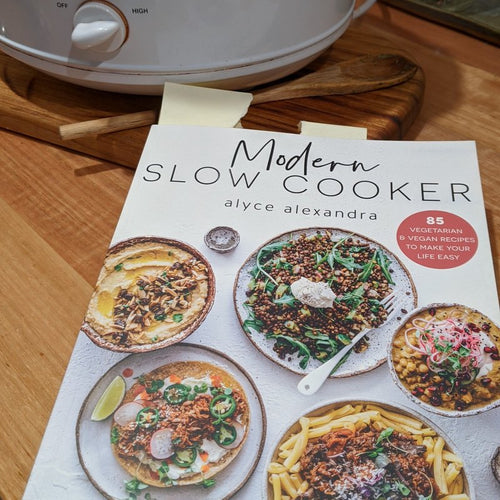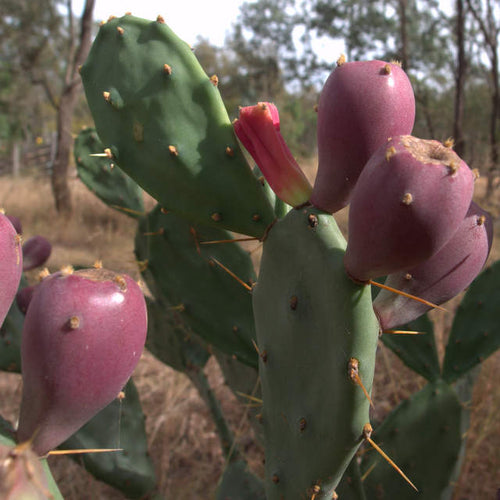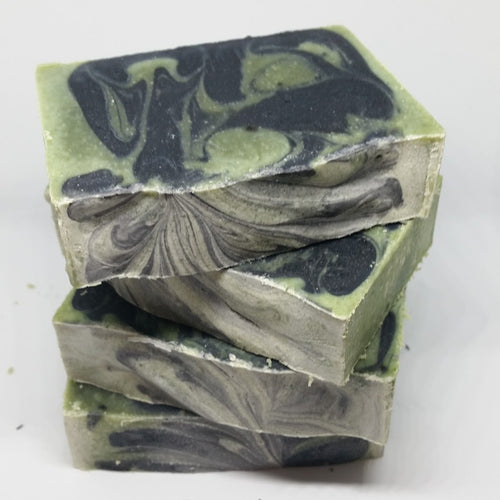Toxic Oil - book review
Reading David Gillespie's "Sweet Poison" was a turning point for me. He explained in plain language how fructose is metabolised by the body and persuaded me to seriously cut back on our sugar consumption. I was so convinced, I also bought the sequel "Sweet Poison Quit Plan". So naturally, when I heard that David was about to publish a book called "Toxic Oil" on the dangers of vegetable oils, of which I was already vaguely aware, I was keen to get a copy. Penguin sent me a copy to review, and once again, I found it very easy to follow and was convinced of David's arguments against vegetable oils.
There's no way I can explain this as well as David does, so I will try to summarise, and if you're interested, you really need to get the book yourself.
The first thing you need to know is that eating fat doesn't make you fat. This hypothesis was never really proven before it became a public health message. If you've read "Sweet Poison" (and you should), you will understand that its actually sugar that makes you fat. Although many people are still not aware that eating fat doesn't make you fat, David is not the first to try to bring it to public attention, see this video for an excellent explanation of why we have been lied to for so long. In researching this review, I've been surprised to see how controversial this first point is, many people are just repeating the public health messages, without any idea of how fat is metabolised or how bad the science was that led to the original message. When you read the way David explains both the science and the politics around oil and fat, just as he did for sugar, you will understand that we have been told lies for years. So while there is no reason to avoid all fat, some fat is better than others.
And then to add to the controversy, David also proves that eating cholesterol and saturated fat does not lead to heart disease. Again, this wasn't a shock to me, but if you're new to this stuff, you may need to read the book and convince yourself. There's also plenty of good science about the bad science that lead to this myth on this website.
Now you need to know a little bit about fats and oils. Fats and oils are made up of triglycerides, which is to say they are three long chains of carbon and hydrogen joined to a glyceride molecule. Saturated triglycerides are generally solid at room temperature because the molecules all pack together more closely. Monounstaturated triglycerides have one double bond, causing the molecules to kink a little and polyunsaturated triglycerides have multiple double bonds and even more kinks. The kinks mean that the molecules can't pack together as tightly, so the triglycerides are liquid at room temperature. All fats and oils are composed of some saturated, monounsaturated and polyunsaturated triglycerides. Generally fats are solid (and therefore more saturated) and oils are liquid (and less saturated) at room temperature, but essentially they are the same thing.
If you're not following the chemistry, all you need to know is that our body metabolises saturated and monounsaturated triglycerides better than polyunsaturated triglycerides, in fact polyunsaturated tricglycerides, with all their unsaturated bonds, are not good for our body chemistry at all, so we should aim to eat mostly saturated and monounsaturated triglycerides. Most seed and nut oils contain a high proportion of polyunsaturated triglycerides and should therefore be avoided. This agrees with Nourishing Traditions, which says that traditional societies ate more saturated and monosaturated triglycerides, as nut and seed oils, which are extracted using chemical processes, were not available.
If you're up to date with the latest nutritional advice, this may sound like total heresy, but if you refer back to my first point, you will see why the official advice is bogus. Forget everythingthe food companies the government, tells you about food, and try to rely more on common sense and eating the way your grandparents did and you'll be fine.....
So what fats should we be eating? Tallow, lard, butter,palm oil and coconut oil are mostly saturated triglycerides (although David also discusses the source of these oils and believes that we shouldn't use palm oil due to rainforest destruction). Olive oil is mostly monounsaturated triglycerides. Macadamia and avocado oil aren't too bad either. Everything else including canola, sunflower, safflower, corn and peanut oil are over 30% polyunsaturated and should be avoided. Unfortunately these are the "good oils" that we now find in most processed foods, including crackers, chips, curry paste margarine, and mayonnaise as well as nearly all forms of fast food. This means you're going to have to get really good at reading labels and probably also preparing some of these things for yourself.
Now just to be confusing, our bodies do need a small amount of polyunsaturated triglycerides for some very specific bodily functions. You might have heard of omega 3 and omega 6. These are polyunsaturated triglycerides that our body needs and cannot synthesis itself. Fortunately we get plenty of omega 6 from the seed and nut oils that are in just about everything, but not enough omega 3. If we don't get the right ratio of the two omegas, our body will use omega 6 instead, and this will disrupt the processes that are supposed to use omega 3. So you need to make sure you don't have too much nut and seed oil, and you do try to consume a source of omega 3. For this reason, I take a teaspoon each of flaxseed oil and cod liver oil each day, as they are both good sources of omega 3. Leafy green veges and anything that's eaten leafy green veges (ie free range grass-fed meat and eggs) are also high in omega 3, and conversely anything grain-fed is high in omega 6.
The great thing about David's book is that, after he explains all the science, he analyses the ingredients in lots of common foods and suggests the safest option, as well as including recipes for homemade alternatives where there is no good option. For us, this is not a big deal, because we already avoid so much processed foods, however it did give me some more knowledge of what to look for on ingredients lists. And even though we live in the peanut capital of Australia, I think we will be cutting down on peanuts and peanut oil!
There were a few things that I thought David missed, and considering how much he did cover, that can be excused. I suppose he is aiming this book at people who aren't as dedicated to avoiding processed foods as I am, but I really don't support eating refined olive oil that has been chemically processed, I'd rather stick to the cold-pressed olive oil. Also the controversy around canola oil was not discussed, and I think it could have easily filled another book, so that's probably a good thing, although he does conclude that its too high in polyunsaturated triglycerides and best avoided anyway.
One other thing that I really appreciated, was near the start of the book where David says he's not a nutritionist or health professional, he's actually a lawyer, and his skill is to analysis evidence and present an argument. I agree with him, that you don't need to be a nutritionist, or even have a science background, to understand and explain how the body metabolises elements of our food, and how we've come to be eating completely the wrong things. I actually think that David has more credibility because he hasn't been indoctrinated with all the wrong information that nutritionists and doctors learn at university, he is able to keep an open mind and explain what he finds out in simple language. I notice that this is another point of criticism on the book, that David is "not qualified" just because he's analysed the data for himself and is not just repeating the same lines that we are used to hearing. As a non-health-professional myself, I do think its actually possible for someone who is fairly intelligent, as David clearly is, to read scientific papers unrelated to one's primary profession and draw conclusions, its just a shame that no government-funded nutritionist has bothered to do so (or not that we have heard about publicly anyway - conspiracy theory: food companies are very happy for you to have the wrong idea about fats and oils, so we remain misinformed).
Now I have to apologise for making your life so much more complicated. Now you need to try to avoid sugar AND vegetable oil. Fortunately there are David's books to help you with reading labels and recipes for making your own, as well as a world of blogs about eating real food. So do some research for yourself and start eliminating and substituting all those toxic oils, good luck!
What do you think? Will you start eating more lard and butter and cut out the toxic vegetable oils? Get into some cod liver oil with breakfast?? Chuck out the margarine?
There's no way I can explain this as well as David does, so I will try to summarise, and if you're interested, you really need to get the book yourself.
The first thing you need to know is that eating fat doesn't make you fat. This hypothesis was never really proven before it became a public health message. If you've read "Sweet Poison" (and you should), you will understand that its actually sugar that makes you fat. Although many people are still not aware that eating fat doesn't make you fat, David is not the first to try to bring it to public attention, see this video for an excellent explanation of why we have been lied to for so long. In researching this review, I've been surprised to see how controversial this first point is, many people are just repeating the public health messages, without any idea of how fat is metabolised or how bad the science was that led to the original message. When you read the way David explains both the science and the politics around oil and fat, just as he did for sugar, you will understand that we have been told lies for years. So while there is no reason to avoid all fat, some fat is better than others.
And then to add to the controversy, David also proves that eating cholesterol and saturated fat does not lead to heart disease. Again, this wasn't a shock to me, but if you're new to this stuff, you may need to read the book and convince yourself. There's also plenty of good science about the bad science that lead to this myth on this website.
Now you need to know a little bit about fats and oils. Fats and oils are made up of triglycerides, which is to say they are three long chains of carbon and hydrogen joined to a glyceride molecule. Saturated triglycerides are generally solid at room temperature because the molecules all pack together more closely. Monounstaturated triglycerides have one double bond, causing the molecules to kink a little and polyunsaturated triglycerides have multiple double bonds and even more kinks. The kinks mean that the molecules can't pack together as tightly, so the triglycerides are liquid at room temperature. All fats and oils are composed of some saturated, monounsaturated and polyunsaturated triglycerides. Generally fats are solid (and therefore more saturated) and oils are liquid (and less saturated) at room temperature, but essentially they are the same thing.
If you're not following the chemistry, all you need to know is that our body metabolises saturated and monounsaturated triglycerides better than polyunsaturated triglycerides, in fact polyunsaturated tricglycerides, with all their unsaturated bonds, are not good for our body chemistry at all, so we should aim to eat mostly saturated and monounsaturated triglycerides. Most seed and nut oils contain a high proportion of polyunsaturated triglycerides and should therefore be avoided. This agrees with Nourishing Traditions, which says that traditional societies ate more saturated and monosaturated triglycerides, as nut and seed oils, which are extracted using chemical processes, were not available.
If you're up to date with the latest nutritional advice, this may sound like total heresy, but if you refer back to my first point, you will see why the official advice is bogus. Forget everything
So what fats should we be eating? Tallow, lard, butter,palm oil and coconut oil are mostly saturated triglycerides (although David also discusses the source of these oils and believes that we shouldn't use palm oil due to rainforest destruction). Olive oil is mostly monounsaturated triglycerides. Macadamia and avocado oil aren't too bad either. Everything else including canola, sunflower, safflower, corn and peanut oil are over 30% polyunsaturated and should be avoided. Unfortunately these are the "good oils" that we now find in most processed foods, including crackers, chips, curry paste margarine, and mayonnaise as well as nearly all forms of fast food. This means you're going to have to get really good at reading labels and probably also preparing some of these things for yourself.
Now just to be confusing, our bodies do need a small amount of polyunsaturated triglycerides for some very specific bodily functions. You might have heard of omega 3 and omega 6. These are polyunsaturated triglycerides that our body needs and cannot synthesis itself. Fortunately we get plenty of omega 6 from the seed and nut oils that are in just about everything, but not enough omega 3. If we don't get the right ratio of the two omegas, our body will use omega 6 instead, and this will disrupt the processes that are supposed to use omega 3. So you need to make sure you don't have too much nut and seed oil, and you do try to consume a source of omega 3. For this reason, I take a teaspoon each of flaxseed oil and cod liver oil each day, as they are both good sources of omega 3. Leafy green veges and anything that's eaten leafy green veges (ie free range grass-fed meat and eggs) are also high in omega 3, and conversely anything grain-fed is high in omega 6.
The great thing about David's book is that, after he explains all the science, he analyses the ingredients in lots of common foods and suggests the safest option, as well as including recipes for homemade alternatives where there is no good option. For us, this is not a big deal, because we already avoid so much processed foods, however it did give me some more knowledge of what to look for on ingredients lists. And even though we live in the peanut capital of Australia, I think we will be cutting down on peanuts and peanut oil!
There were a few things that I thought David missed, and considering how much he did cover, that can be excused. I suppose he is aiming this book at people who aren't as dedicated to avoiding processed foods as I am, but I really don't support eating refined olive oil that has been chemically processed, I'd rather stick to the cold-pressed olive oil. Also the controversy around canola oil was not discussed, and I think it could have easily filled another book, so that's probably a good thing, although he does conclude that its too high in polyunsaturated triglycerides and best avoided anyway.
One other thing that I really appreciated, was near the start of the book where David says he's not a nutritionist or health professional, he's actually a lawyer, and his skill is to analysis evidence and present an argument. I agree with him, that you don't need to be a nutritionist, or even have a science background, to understand and explain how the body metabolises elements of our food, and how we've come to be eating completely the wrong things. I actually think that David has more credibility because he hasn't been indoctrinated with all the wrong information that nutritionists and doctors learn at university, he is able to keep an open mind and explain what he finds out in simple language. I notice that this is another point of criticism on the book, that David is "not qualified" just because he's analysed the data for himself and is not just repeating the same lines that we are used to hearing. As a non-health-professional myself, I do think its actually possible for someone who is fairly intelligent, as David clearly is, to read scientific papers unrelated to one's primary profession and draw conclusions, its just a shame that no government-funded nutritionist has bothered to do so (or not that we have heard about publicly anyway - conspiracy theory: food companies are very happy for you to have the wrong idea about fats and oils, so we remain misinformed).
Now I have to apologise for making your life so much more complicated. Now you need to try to avoid sugar AND vegetable oil. Fortunately there are David's books to help you with reading labels and recipes for making your own, as well as a world of blogs about eating real food. So do some research for yourself and start eliminating and substituting all those toxic oils, good luck!
What do you think? Will you start eating more lard and butter and cut out the toxic vegetable oils? Get into some cod liver oil with breakfast?? Chuck out the margarine?























Leave a comment